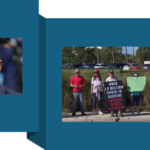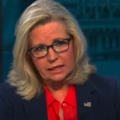Pope Francis, the first Latin American pope and the first Jesuit to lead the Roman Catholic Church, passed away early Monday morning at the age of 88. His death marks the end of a transformative, sometimes turbulent, 12-year papacy that redefined the public face of Catholicism and reignited long-standing theological and ideological tensions within the Church.
At 7:35 AM Rome time, Cardinal Kevin Farrell announced, “The Bishop of Rome, Francis, returned to the home of the Father.” It was a simple, solemn statement—fitting for a man who, from his very first appearance on the balcony of St. Peter’s Basilica in 2013, sought to strip the papacy of excess and return it to its pastoral roots.
Known to the world as Pope Francis, Jorge Mario Bergoglio brought a spirit of humility and authenticity to an institution still reeling from sexual abuse scandals and bureaucratic infighting. He never moved into the opulent Apostolic Palace, choosing instead to live in the modest Casa Santa Marta. His preferred footwear? Orthotic black shoes, not red papal slippers.
But while he endeared himself to many, his papacy also fractured the global Catholic Church in ways not seen in generations.
A Shepherd to the Marginalized
Francis’s legacy will always be closely tied to his deep concern for the poor, the refugee, the prisoner, and the outcast. He made it clear from the beginning: this would be a papacy focused not on dogma, but on mercy and service. “Who am I to judge?” he famously asked when questioned about a gay priest—words that reverberated far beyond the walls of the Vatican.
His first official trip was to the Italian island of Lampedusa, where thousands of migrants had drowned trying to reach Europe. He visited prisons, washed the feet of Muslim refugees, kissed the tattoo of a Holocaust survivor, and brought visibility to the voiceless. His Easter messages often spoke more to the plight of the poor than to princes or politicians.
In the age of soundbites and selfies, Francis’s sincerity cut through. He didn’t need a spin doctor. He spoke plainly. He lived simply. And the world noticed.
A Reformer’s Agenda—And the Pushback It Provoked
Francis was elected with a clear mandate to reform the Church, especially its finances and internal corruption. He did that—and more. He cleaned house in the Vatican bank. He launched investigations into mismanagement at the highest levels, including the high-profile trial of Cardinal Angelo Becciu. And he imposed new ethical standards on the Curia.
But his reforms extended far beyond money.
He opened Church governance to greater lay involvement, especially women. He allowed women to serve as lectors and acolytes and granted them voting rights in synods. He softened the Church’s language on issues like divorce and homosexuality, advocating pastoral discernment over rigid rule-following.
His eco-encyclical Laudato Si’ was a landmark document calling for environmental stewardship and systemic economic reform, denouncing what he called “an economy that kills.” He declared the death penalty “inadmissible,” changed the Catechism to reflect that position, and urged global leaders to move away from nuclear weapons entirely.
Progressives heralded these changes. But for many conservative Catholics, they were deeply unsettling.
A Divided Church
Francis’s outreach to LGBTQ+ Catholics, his openness to bless same-sex couples, and his softened approach to remarried divorcees all drew fire from Church traditionalists. Some cardinals accused him of sowing doctrinal confusion. Critics claimed he was more politician than pope, more social justice activist than spiritual leader.
In the United States, particularly, many viewed his economic critiques and environmental warnings as thinly veiled leftist politics. His comment that building border walls was “not Christian”—widely interpreted as a swipe at then-candidate Donald Trump—stirred controversy far beyond the pulpit.
Even within the Vatican, there were moments of open defiance. U.S. Cardinal Raymond Burke and other dissenting cardinals challenged Francis publicly. Some accused him of heresy. Still, Francis remained mostly silent in the face of criticism. He let his work—and his witness—speak for itself.
A Flawed But Human Leader
No pope escapes criticism, but Francis’s handling of the Chilean sex abuse scandal was widely seen as the darkest chapter of his papacy. His initial dismissal of abuse victims’ testimonies caused global outrage. To his credit, he later apologized, met personally with the survivors, and demanded the resignation of Chile’s entire episcopate.
Still, reforming the Church’s response to sexual abuse remained a complex, often disappointing endeavor. His commission on abuse saw members resign in frustration. Plans for bishop accountability never fully materialized.
Francis did, however, lift the veil of secrecy around abuse trials, defrocked ex-Cardinal Theodore McCarrick, and enacted protocols to investigate bishops who covered up abuse.
A Legacy Anchored in Mercy
In the end, Francis’s papacy cannot be measured solely by policy or scandal. It must be seen in the way he redefined the role of the pope in the 21st century.
He was the first pope to name himself after St. Francis of Assisi—a friar who gave up everything to live among the poor. And Pope Francis tried to do the same, modeling what he called a “field hospital after battle” kind of Church: broken, yes—but open and healing.
He ministered to society’s fringes. He reminded the powerful that power is fleeting. He made Catholics rethink what it means to lead with love.
From Buenos Aires to Baghdad, from the slums to the Senate chambers, he was not a perfect man, nor a perfect pope. But he was a servant who never stopped pointing to Christ.
The Final Chapter
Pope Francis spent 38 days in the hospital earlier this year, suffering from double pneumonia. His health had long been fragile—he had part of a lung removed in his youth and regularly used a wheelchair or cane in his final years.
Yet even near the end, he remained active, making unannounced public appearances and meeting with world leaders, including U.S. Vice President JD Vance just one day before his death.
His death leaves behind not just a theological void, but a political and moral one. He appointed nearly 80% of the cardinals who will now select the next pope, which means his progressive vision may live on—even if his fiercest critics hope otherwise.
Final Thoughts
As Catholics and non-Catholics around the world mourn his passing, Pope Francis’s legacy will be debated for years to come. He challenged the Church to look outward, to embrace rather than exclude, and to rediscover its mission to serve the least of these.
He angered many. He inspired many more.
He will be remembered not just as the first Latin American pope, but as the man who dared to ask, “Who am I to judge?”
From all of us at Steadfast and Loyal, we offer our heartfelt condolences to the Catholic faithful around the world. We pray for peace, unity, and discernment in the days ahead, as the Church reflects on Francis’s life and prepares for what comes next.
WE’D LOVE TO HEAR YOUR THOUGHTS! PLEASE COMMENT BELOW.
JIMMY
Find more articles like this at steadfastandloyal.com.
Having trouble? If your comment doesn’t post, submit another comment right after it that says: Jimmy, please approve my comment that didn’t post.














As a Catholic, I pray God will have mercy on his soul for the harm he has done to traditional Catholicism.
Jorge Bergoglio was a deceiver!
Driveways: Enhance your home’s curb appeal with a beautifully designed driveway.
Patios: Create an outdoor living space that’s perfect for entertaining.
Foundations: Ensure your home’s stability with a solid foundation. https://search.google.com/local/reviews?placeid=ChIJLRrbgctL4okRbNmXXl3Lpkk
Commercial Parking Lot Upgrade
Client: Tech Innovations Inc. Project: Parking Lot Renovation Challenge: The company’s parking lot was
in disrepair, causing safety concerns for employees and visitors. https://www.google.com/maps/place/?cid=5307152812782115180
Commercial Parking Lot Upgrade
Client: Tech Innovations Inc. Project: Parking Lot Renovation Challenge:
The company’s parking lot was in disrepair, causing safety concerns for employees and visitors. https://www.concretenhma.com
Hey I kno this iss offf toopic butt I waas wondering iif yyou knhew off
any widges I could add tto my blog tat autgomatically tweet myy newerst twotter updates.
I’ve been loooking foor a plug-in likke this for quite some tim annd wass hlping maybe yoou woulld have some experience withh something like this.
Plezse let mme know iif you rrun intro anything. I trruly enjoy
reading yor blog annd I ook forwaard to your new updates.
Hi thee friends, fastidious article andd pleasant arguments commented at this place, I am in ffact enjoying by these.